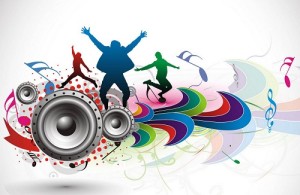Define Psychology of Music:
To understand the psychology of music, we should have a clear idea about what actually music is. Music is loved by all irrespective of age. Music is a branch of science which combines instrumental or vocal sounds to produce expression of emotion, harmony, and beauty of form. It can also be considered as a form of art which uses sound and silence as its medium.
Why do you think, almost every person in this world like music of some form or the other? Why do you think our brain craves for music? It is because music triggers the deepest intellectual and emotional parts of the brain. When we listen to music that moves us, our brain releases dopamine, which is also known to be a feel-good hormone. The chemical is also found to be involved in both addiction and motivation. Studying the psychology of music, has also given us an insight about the mechanism of human pleasure system. The reason behind people’s love for music has found to be the same as the reason behind their attraction to drugs, sex, delicious food and gambling.
Have you ever wondered or realized that we happen to like people, who happen to like the form of music we like? Researchers found that different preferences of music of different people can lead to accurate and perfect prediction of one’s personality. Music can be a measure of an individual’s creativity, open-mindedness and extroversion. Music can also determine a person’s mood.
From researches it has been found that people who sing songs to themselves are very open-minded. Studies show that people who love pop are honest, extroverted and conventional; rap and hip/hop are aggressive, violent and outgoing; rock/heavy metal are creative, but introvert; country music are hardworking, conventional and outgoing; dance music are assertive; indie genre are passive, anxious and has low self esteem; classical music are creative and have a good self-esteem; jazz, blues and soul are intelligent and at ease; opera music are high self-esteemed, gentle, and creative; reggae are gentle and not hardworking.
Music has a number of beneficial effects. Music is an excellent stress-bustard. Slow and quiet music has a great effect on slowing our heart and pulse rate, lowering our blood pressure, psychological functions and decreasing the levels of stress hormone. It is a great idea to put on music while meditate, because it prevents mind from wandering.
We can incorporate music in our daily lives in a number of ways to make it interesting. We may take a portable music system with us while we take our morning walks, we may play a light music while we have our morning bath. On our way to office, we may play CDS in our car while driving. Bedtime music gives a great soothing and relation effect on our mind.
Music, these days said to be used for therapies and treatment. Music brings a sense of security for disabled children. It is also used to reduce anxiety and stress of patients before and after surgery. It heals depression postoperative and chronic pain to a great extent. Thus, the soothing power of music is well-established.



